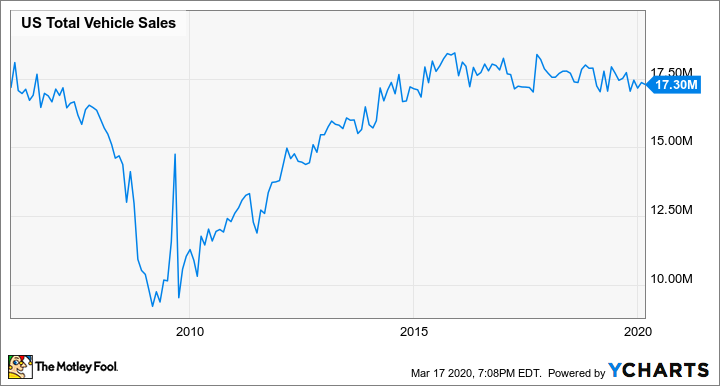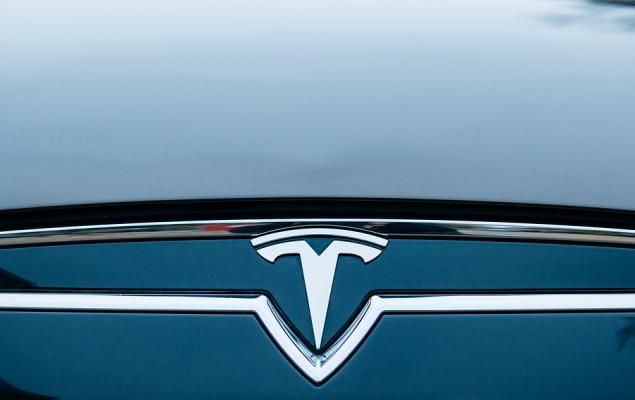Read The Full Article On: Fool
Tesla (NASDAQ:TSLA) has long been a battleground stock, but the battleground has suddenly tilted against it.
Bears and short-sellers have long whooped over the electric-car maker’s demise, but with the coronavirus pandemic spreading around the world, what was once a seemingly schadenfreude-driven fantasy now increasing looks like a stark reality.
Even as Tesla stock has already plunged more than 53% since the coronavirus crash began around Feb. 20, it could still have a lot further to fall. This is a company that lost money over the last year on a GAAP basis and was only modestly profitable on an adjusted basis. Even after the recent sell-off, Tesla is still valued at $80 billion, more than double what it was worth less than a year ago.
Now, as much of the world imposes lockdown-style measures in order to control the COVID-19 outbreak, the company looks like it will face a number of intense challenges over the coming months. Let’s look at a few of them.

A TESLA MODEL 3. IMAGE SOURCE: TESLA.
Recession and luxury don’t mix
There’s no question that Tesla vehicles are a luxury product, renowned for their high performance and priced similarly to other high-end vehicles. Like other high-priced cars, they’re sometimes markers of conspicuous consumption.
In a strong economy, it’s not a surprise that Tesla, given its vehicles’ reputation, caught on and grew quickly, threatening to disrupt traditional internal combustion vehicles.
But we’re suddenly living in a different time now where people are stockpiling food and toilet paper because they don’t know when they’ll be able to leave the house again. It’s not a time to flex on your tech muscle out in public in your new Model 3.
The outbreak will eventually fade, but the U.S and much of the world is enduring a near-unprecedented economic shock as whole countries shut down almost all businesses in order to halt the spread of the deadly virus. The U.S. and the world are likely plunging into a recession, which tends to curtail spending on both big-ticket items like cars and luxury products in general.
In February, auto sales in China, the world’s biggest auto market, fell 82% as much of the country was shut down to fight the spread of the coronavirus, and the recovery there is likely to be sluggish. The U.S. and Europe could see a similar plunge in auto sales in March and April, and car-buying could decline for a while as the economy won’t quickly snap back to full health. The chart below shows what happened to car sales during the last recession.

US TOTAL VEHICLE SALES DATA BY YCHARTS.
As you can see, sales fell by nearly half and took several years to fully recover.
Factory shutdowns are looming
We don’t yet know the impact of the coronavirus outbreak on manufacturing in the U.S. and Europe, but the early signs are not favorable. In Europe, manufacturers including Volkswagen, Airbus, Fiat Chrysler, Peugeot, and Renault have all shut down some production for varying lengths of time. In the U.S., the United Auto Workers union has called for two-week shutdowns at the Ford, GM, and Chrysler factories so workers don’t get sick.
Tesla CEO Elon Musk has said that its Fremont, California, plant, where it produces most of its vehicles, will remain open, though workers could stay home if they wanted to. But on Tuesday night, the Alameda County sheriff deemed it nonessential, forcing it to shut some operations since the plant is in one of the Bay Area counties currently under a shelter-in-place rule. Tesla was also forced to shutter its factory in Shanghai for a week and a half during the height of its outbreak.
A closed Fremont factory could hamper production and delay deliveries, and Tesla’s workforce remains at risk of the virus.
Lower oil prices
In addition to all this, oil prices have plummeted in recent weeks due to a price war between Russia and Saudi Arabia. Electric vehicle (EV) sales are sensitive to gas prices since the potential cost savings of EVs rise as gas prices go up. High fuel costs also help explain why Tesla’s top U.S. market is in California, where gas prices are among the steepest in the nation. But with the sharp drop in oil prices, the average cost of a gallon of gas has fallen to just $2.23, according to the AAA, reaching a three-year low. Considering that demand is falling significantly and could continue that way if a recession hits, the value proposition for EVs looks considerably worse than just a few months ago, especially if consumers are strapped for cash.
Tesla wisely raised $2.3 billion in February, which will help with its liquidity. But the company may have done the secondary offering, which came after Musk had pledged not to raise more capital, because it saw the hit it was taking from the coronavirus in China.
Analyst forecasts for this year still look entirely too rosy. The consensus predicts adjusted earnings per share will jump from $0.20 last year to $8.22, on a 32.6% increase in revenue to $32.6 billion. But those forecasts came before the pandemic swept into Europe and the U.S. The longer the current crisis goes on, the deeper the hole it will put Tesla in. And the likely recession that follows will deal a blow to car companies in general.
Tesla stock still looks priced for perfection, and it now faces supply challenges, a demand squeeze, and the specter of lower gas prices. The stock could still go a lot lower from here.

